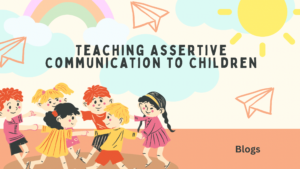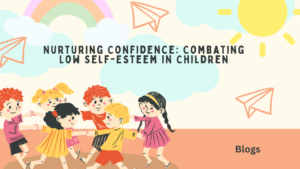Self-Love for Children
Teaching children the importance of self-love lays the foundation for a positive self-image and emotional well-being. Building a strong sense of self-love enables children to navigate life’s challenges with resilience and compassion.
Why is teaching this so important?
- Building Inner Confidence: When they recognize and appreciate their strengths, it becomes a source of resilience in the face of challenges.
“Look at how well you solved that puzzle! Your unique way of thinking makes you so special.”
- Cultivating Positive Self-Talk: Guiding them to replace self-criticism with affirmations promotes a healthier mindset.
“If you make a mistake, it’s okay. Tell yourself, ‘I’ll try again and learn from this experience.'”
- Respecting Individuality: Accepting and respecting their individuality helps them embrace differences in others.
“Your friend might like different games, and that’s perfectly fine. We celebrate everyone’s unique preferences. Do you know what you like?”
- Developing Emotional Resilience: Children with a foundation of self-love are better equipped to manage emotions. They learn to acknowledge feelings without harsh judgment.
“It’s okay to feel sad sometimes. Remember, you are loved, and we can talk about what’s on your mind.”
Practical Ways to teach Self-Love to Children:
- Encourage Self-Expression: Support creative outlets for self-expression, whether through art, storytelling, or imaginative play. This improves their self-worth.
“How about creating a picture that represents all the things you love about yourself? We’ll decorate it and paste it on your wall – it’ll act as a reminder!”
- Highlight Strengths and Achievements: Do this regularly. This positive reinforcement reinforces a sense of pride and self-appreciation.
“You did an amazing job on that project! Your effort and creativity really shine.”
- Teach Gratitude: Encourage children to appreciate the positive aspects of their lives. Gratitude enhances a sense of contentment and self-love.
“Before bedtime, let’s talk about three things that made you happy today. It’s a lovely way to appreciate yourself.”
- Model Self-Love: Parents serve as powerful role models. Demonstrate self-love by practicing self-care, setting boundaries, and speaking kindly about oneself.
“I’m taking some quiet time to read because it brings me joy. Everyone deserves moments of self-care.”
- Hug Yourself: Teach your child to hug himself/herself. This touch imbibes self-love like no other.
“Let’s take a deep breath and hug ourselves. Wow! Let’s say ‘I accept myself’ while we do it.”
In conclusion, teaching self-love to children is a gift that lasts throughout their lives. By instilling confidence, positive self-talk, and an appreciation for individuality, parents contribute to the emotional resilience and well-being of their children. These simple yet impactful practices sow the seeds for a lifelong journey of self-love and acceptance.




